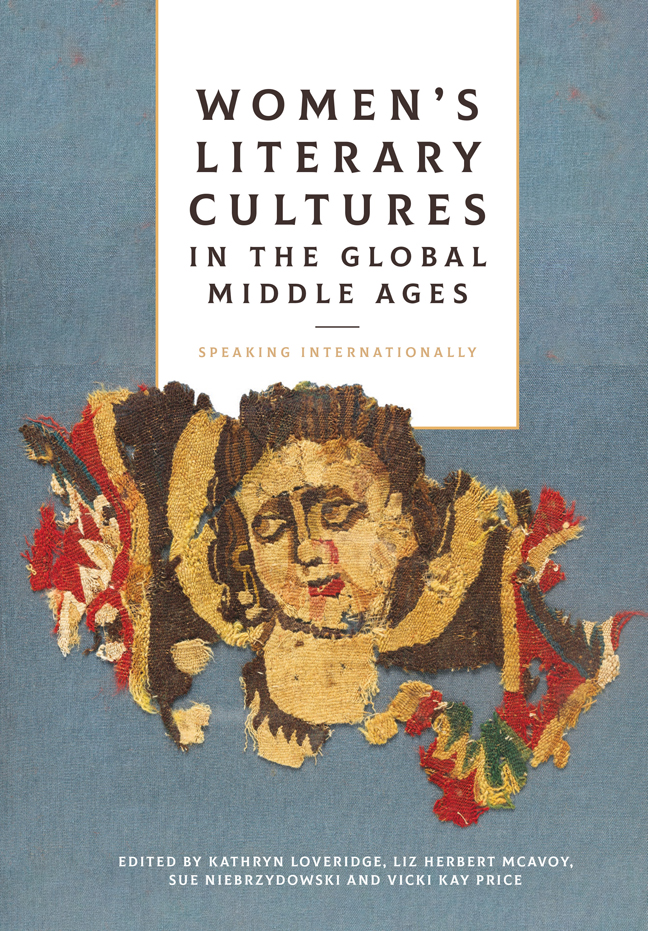Book contents
- Frontmatter
- Contents
- Foreword
- Acknowledgements
- List of Abbreviations
- Book part
- 1 Comparison and Dialogue
- 2 Constructing Gender and Genre
- 3 Saintly Performance and Marian Piety
- 4 Evidence and the Archives: Revisiting and Reconsidering
- Afterword: Intersectionality and Coalitions
- List of Contributors
- Bibliography
- Index
- Gender in the Middle Ages
6 - Rābi‘a Al-‘Adawiyya: Gender, Authority and Paradox in ‘Attār's Tadhkirat Al-Awliyā’ and the Mantiq Al-Tayr
Published online by Cambridge University Press: 09 January 2024
- Frontmatter
- Contents
- Foreword
- Acknowledgements
- List of Abbreviations
- Book part
- 1 Comparison and Dialogue
- 2 Constructing Gender and Genre
- 3 Saintly Performance and Marian Piety
- 4 Evidence and the Archives: Revisiting and Reconsidering
- Afterword: Intersectionality and Coalitions
- List of Contributors
- Bibliography
- Index
- Gender in the Middle Ages
Summary
Rābi‘a al-‘Adawiyya al-Qaysiyya, also known as Rābi‘a al-Basriyya (d. 801), is the most renowned Muslim female ascetic in the Islamic world. Recognised simply as Rābi‘a, she continues to be venerated as a saint and celebrated as the earliest Sufi poet to express her love for the divine; indeed, it is not difficult to find streams of poems, anecdotes and devotional sayings attributed to her. The roughly defined corpus of poetry that carries Rābi‘a's name is a treasure trove of literary abundance. Collectively, these works reveal a strident, independent woman deeply devoted to God who is at once affectionate, witty, sharp and, as Ayoush Lazikani demonstrates here and elsewhere, rich in feeling, whose poetry is invaluable for exploring Muslim women's expressions of affective piety and divine love. However, in this essay I aim to approach Rābi‘a not as a poet, but as a constructed literary figure created through male authorship. As Rkia Elaroui Cornell has recently shown, the rich and multivocal Rābi‘a who exists in literary form is at odds with the historic Rābi‘a: few facts about her exist and there is no textual evidence to suggest she composed poetry or recorded biographical anecdotes during her own lifetime. Instead, her narrative and literary voice has been constructed, shaped and interpreted by a range of male authors who are responsible not only for the anachronistic labels of Rābi‘a as both Sufi and a Divine Love poet, but for singling her out as an exemplary female mystic who holds as much, if not more, authority than her male counterparts.
The role of male authorship has long been recognised as crucial to the preservation of early Muslim women's voices and one of a number of obstacles in determining ‘something of the true historical lives and spiritual practices of early saints and mystical figures’. In order to reap the value of these writings, scholars have turned to them in earnest – and rightly so. As Maria Dakake emphatically notes,
this literature is all that remains to us of these early mystical women in Islam; if we simply dismiss it as mostly or largely fictional then whatever these women can teach us about the relationship between gender and spirituality in the early Islamic period is decidedly lost.
Here, I want to emphasise that fictionality, invariably male-authored, is a key component in Muslim women's writing.
- Type
- Chapter
- Information
- Women's Literary Cultures in the Global Middle AgesSpeaking Internationally, pp. 123 - 140Publisher: Boydell & BrewerPrint publication year: 2023



